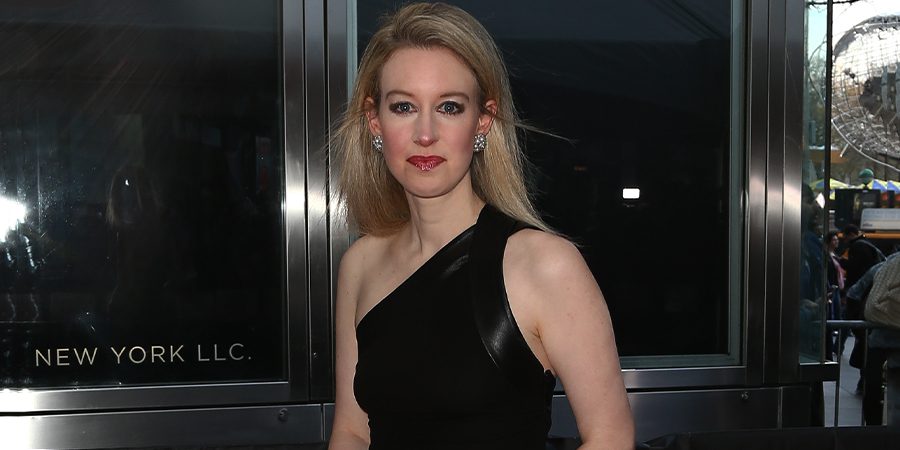In this article, we’ll look at the reasons behind Elizabeth Holmes’ temporary reprieve from prison and the details surrounding her appeal.
Key Takeaways:
- Elizabeth Holmes avoids prison this week due to a last-minute appeal filed by her attorneys
- The appeal cites “numerous, inexplicable errors” in the judge’s ruling
- Holmes’ legal team argues that her appeal is likely to result in reversal, so she should remain free on bail
- Ramesh “Sunny” Balwani, Holmes’ former boyfriend and co-defendant, used a similar tactic to delay his prison time, but ultimately reported to prison last week
The Last-Minute Appeal
Just as Elizabeth Holmes, the infamous founder of Theranos, was set to begin her 11-year sentence this week, her legal team launched a last-minute appeal.
The legal team representing Holmes lodged an appeal to challenge the ruling of the court.
This appeal was made to the U.S. 9th Circuit Court of Appeals located in San Francisco. As a result, Holmes was able to stay out of jail on bail for the time being.
Her reprieve from jail can be traced back to this eleventh-hour appeal, which cited “numerous, inexplicable errors” in the judge’s initial ruling.
Arguments Presented in the Appeal
In their bid to keep Holmes out of prison, her legal team claimed that the judge’s ruling contained several glaring errors.
Among these were references to “patient fraud counts,” even though Holmes had been acquitted of defrauding Theranos patients.
Holmes’ attorneys further argued that she should be allowed to remain free on bail while appealing her conviction because the appeal has a high likelihood of resulting in reversal.
They maintain that Holmes could not have knowingly misrepresented the supposedly groundbreaking blood-testing technology to investors, as she truly believed the product worked.
The appeal also stated that highly credentialed Theranos scientists informed Holmes that the technology was functional, and it had been reviewed positively by outsiders.
Additionally, Theranos’ developments were awarded numerous patents, further bolstering their argument.
The lawyers representing Holmes argue that the government’s case against her is just a repetition of what was said in a few critical Wall Street Journal articles back in 2015.
Holmes’ appeal challenges various decisions made by the judge about evidence and witnesses.
One of the issues raised is the decision to allow a former director of the Theranos lab to testify as an expert witness.
Comparisons to Ramesh “Sunny” Balwani’s Case
Holmes’ former boyfriend and mentor, Ramesh “Sunny” Balwani, was also convicted in a separate trial.
He sought to remain free pending his appeal and took his case to the 9th Circuit when the judge denied his motion.
However, within three weeks, the appeals court rejected his request.
Balwani eventually reported to a low-security federal prison in Los Angeles last week to begin his nearly 13-year sentence.
As Holmes attempts to remain free during her appeal, parallels can be drawn between her case and Balwani’s, raising questions about the likelihood of her success.
Supporting Brief from the National Association of Criminal Defense Lawyers
In an interesting development, the National Association of Criminal Defense Lawyers (NACDL) has filed a brief in support of Holmes’ appeal.
They argue that the government abused the rules on expert testimony in her case, and that this issue is part of a broader trend.
According to attorney Brian Goldman, this “sleight of hand” is, unfortunately, all too common.
According to him, the government has in the past ignored the federal regulations and made it unclear whether the witnesses were experts or not.
The NACDL’s support for Holmes’ appeal adds another layer of complexity to the case and may have implications for future cases involving expert testimony.
Conclusion
Elizabeth Holmes’ avoidance of prison time, albeit temporary, has captured the public’s attention once more.
The appeal filed by her legal team raises numerous questions about the judge’s rulings, the credibility of expert witnesses, and the validity of the government’s case.
As the deadline for the government’s response to Holmes’ appeal looms on May 3, the future of this high-profile case is still shrouded in uncertainty.
With multiple factors at play, including the arguments presented in her appeal, comparisons to Ramesh “Sunny” Balwani’s case, and the supporting brief from the National Association of Criminal Defense Lawyers, the final verdict remains to be seen.
As this captivating legal battle continues to unfold, public interest in the outcome is only set to intensify.
 Sections of this topic
Sections of this topic
















